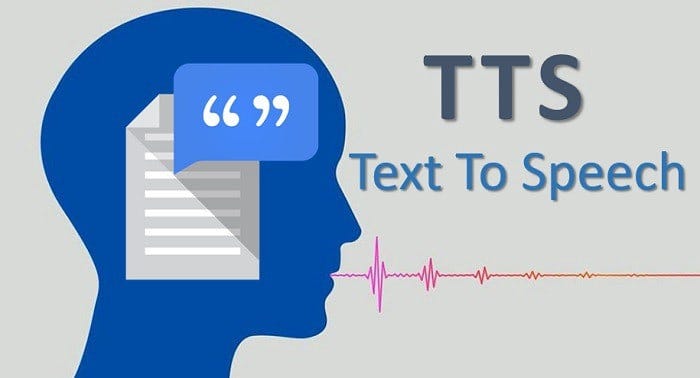
Text to speech
Created on 5 October, 2024 • Text Tools • 55 views • 3 minutes read
Text to Speech: The Future of Digital Communication
Text to speech (TTS) technology is revolutionizing how we interact with digital devices, making content more accessible and convenient. Whether you're a business looking to improve user experience or an individual seeking to enhance accessibility, TTS solutions offer immense value. This article explores how text to speech works, its benefits, and the best use cases for this innovative technology.
What is Text to Speech?
Text to speech (TTS) is a form of assistive technology that reads digital text aloud. It converts written words into spoken language using synthetic voices. TTS can be used on various devices, including computers, smartphones, and tablets, making digital content accessible to a broader audience.
How Does Text to Speech Work?
TTS technology works by analyzing written text and generating speech. It uses a combination of linguistic processing, machine learning, and natural language processing (NLP) to produce human-like speech. Modern TTS systems allow users to select different voice types, accents, and even speech speed to customize their listening experience.
Benefits of Text to Speech Technology
1. Enhances Accessibility
One of the most significant advantages of TTS is its ability to make digital content accessible to those with visual impairments or reading disabilities, such as dyslexia. TTS allows users to listen to written content, making it easier for everyone to engage with the digital world.
2. Increases Productivity
TTS can help users multitask by allowing them to listen to articles, emails, or reports while performing other tasks. This feature is especially useful for professionals who need to maximize their time or individuals who prefer auditory learning.
3. Language Learning Support
TTS technology can also support language learners by providing an opportunity to hear the correct pronunciation of words and phrases. By offering various voice options and languages, TTS can enhance the learning experience for both beginners and advanced language students.
4. Improves User Experience
Businesses can integrate TTS into their apps, websites, or services to improve the overall user experience. For example, e-commerce sites can offer audio descriptions of products, while news platforms can provide spoken versions of articles for users on the go.
Best Use Cases for Text to Speech
1. Education
TTS is a valuable tool for educators and students. It can help with reading comprehension, assist students with learning disabilities, and make educational materials more engaging. TTS can also be used to create audio books and podcasts from text-based content.
2. Customer Service
Incorporating TTS into customer service platforms can enhance the customer experience by providing automated voice responses. TTS systems can read FAQs or troubleshoot guides aloud, allowing users to find the information they need without navigating through text-heavy documents.
3. Content Creation
Content creators can leverage TTS to create podcasts, audio blogs, or voiceovers for videos. It saves time and effort compared to recording human voices and provides a cost-effective solution for generating spoken content from text.
4. Smart Devices and IoT
TTS is integral to the functionality of many smart devices and Internet of Things (IoT) technologies. Devices like smart speakers and virtual assistants (e.g., Amazon Alexa or Google Assistant) rely on TTS to communicate with users. As IoT devices become more prevalent, the role of TTS in these applications will continue to grow.
Choosing the Right Text to Speech Software
When selecting a TTS software or service, there are a few factors to consider:
Voice Quality
High-quality TTS solutions offer natural, human-like voices. It's important to choose software that offers multiple voice options to suit different preferences or needs.
Language Support
If you need to generate speech in multiple languages, look for TTS software that supports a wide range of languages and dialects.
Customization Features
Some TTS systems allow users to adjust the speed, tone, and pitch of the voice. Look for software that offers these customization options for a personalized listening experience.
Integration Capabilities
For businesses looking to integrate TTS into their platforms, it's essential to choose software with easy API integration to streamline the process.
Conclusion: Embrace the Power of Text to Speech
Text to speech technology is transforming how we interact with digital content, offering accessibility, productivity, and convenience. Whether you're an educator, content creator, or business owner, TTS can enhance the user experience and open up new possibilities for engagement. As TTS technology continues to evolve, it will play an even greater role in shaping the future of digital communication.
Popular posts
-
Ascii converterConverter Tools • 116 views
-
Hex converterConverter Tools • 106 views
-
Binary converterConverter Tools • 95 views
-
Case converterText Tools • 92 views
-
DNS LookupChecker Tools • 91 views